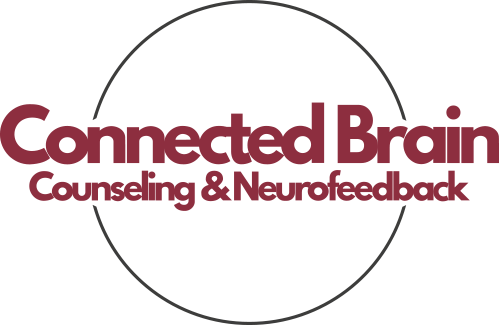Are you and your partner feeling contempt in your marriage? Contempt is one of the most damaging forms of disrespect and can lead to serious long-term consequences if left unchecked. It’s important to recognize when contempt is creeping into your relationship and what steps you can take to address it. In this blog post, we will discuss what contempt in a marriage looks like, the signs of developing resentment, missed opportunities for communication, and decreased emotional intimacy. We will also discuss when couples counseling in Denver may be necessary to help you and your partner repair and rebuild your relationship.
What is Contempt in a Marriage?

Contempt in a marriage is a toxic emotion that can poison the relationship from within. It goes beyond mere annoyance or frustration and involves feelings of superiority and disrespect towards your partner. It is a destructive force that erodes the foundation of trust, intimacy, and love in a marriage.
Contempt can manifest in various ways, such as sarcasm, mocking, eye-rolling, and belittling comments. It is often characterized by a sense of disdain and condescension towards your partner. Instead of viewing them as an equal, contempt causes you to see them as inferior or unworthy of respect.
This toxic emotion can lead to a downward spiral in the relationship, as it breeds resentment and hostility. It creates a toxic atmosphere where both partners feel unvalued and unheard. As contempt festers, it becomes harder to communicate effectively, leading to a breakdown in emotional intimacy.
If left unchecked, contempt can be incredibly damaging to a marriage. However, recognizing the signs of contempt is the first step towards addressing and resolving the issue. By acknowledging and understanding contempt, couples can seek professional help and take the necessary steps to rebuild their relationship.
Remember, a healthy marriage is built on mutual respect, love, and understanding. If contempt is becoming a pervasive presence in your relationship, it’s crucial to take action before it irreparably damages your connection with your partner. Seek counseling or therapy to learn healthier ways of communicating and reconnecting with each other on a deeper level.
Signs of Developing Resentment
Resentment is like a silent poison that slowly corrodes a marriage from within. It starts with small irritations and disappointments, but if left unchecked, can lead to a deep-seated contempt for your partner. Recognizing the signs of developing resentment is crucial in order to address the underlying issues and prevent further damage to your relationship.
One clear sign of developing resentment is a growing feeling of anger or frustration towards your partner. This anger may be triggered by specific actions or behaviors, or it could become a constant presence in your interactions. You may find yourself becoming more critical or judgmental, focusing on your partner’s flaws and mistakes rather than their positive qualities.
Another sign is a lack of appreciation for your partner’s efforts or contributions. You may begin to take their actions for granted or dismiss their accomplishments, leading to a decrease in gratitude and overall satisfaction within the relationship.
Furthermore, you may notice a decrease in your willingness to communicate openly and honestly with your partner. Instead of addressing issues directly, you might choose to withdraw or avoid difficult conversations altogether. This lack of communication can create a growing emotional distance between you and your partner.
It is essential to recognize these signs of developing resentment in order to take the necessary steps towards healing and growth. Ignoring or dismissing these feelings can lead to a further deterioration of your relationship. Seeking couples counseling can be an effective way to address and resolve issues of resentment, allowing you to rebuild trust, improve communication, and restore emotional intimacy in your marriage. Remember, it’s never too late to address the contempt that may be lurking in your relationship and take steps towards a healthier, more fulfilling marriage.
Missed Opportunities for Communication
In any relationship, communication is key. It is the foundation upon which trust, understanding, and intimacy are built. However, in marriages where contempt starts to creep in, communication often takes a back seat, leading to missed opportunities for connection.
One of the signs that contempt is growing in your marriage is when you find yourself avoiding conversations with your partner. You may choose to keep your thoughts and feelings to yourself, fearing that they will only lead to conflict or rejection. This avoidance creates a wall between you and your partner, making it difficult to address important issues and find resolution.
Another missed opportunity for communication is when you no longer share your dreams, hopes, and aspirations with your partner. Contempt can create a sense of disconnect, causing you to withhold information or thoughts about your future together. By not opening up about your desires, you miss the chance to build a shared vision and create goals as a couple.
Moreover, when contempt is present, listening also becomes a challenge. You may find yourself constantly interrupting your partner, dismissing their opinions, or simply tuning them out. This lack of active listening prevents true understanding and hinders effective communication.
To combat these missed opportunities for communication, it is essential to create a safe and judgment-free space for open dialogue. Practice active listening by giving your partner your full attention and truly seeking to understand their perspective. Engage in regular check-ins where you can discuss both the positive and challenging aspects of your relationship.
Remember, open and honest communication is the antidote to contempt in a marriage. By recognizing and addressing missed opportunities for communication, you can take the first step towards healing and reconnecting with your partner.
What To Do When You Notice Emotional Intimacy Decreasing
One of the most heartbreaking signs of contempt in a marriage is the gradual decrease in emotional intimacy. Emotional intimacy is the foundation of a strong and healthy relationship, and when it starts to wane, it can create a growing divide between partners.
One way to recognize a decrease in emotional intimacy is when you no longer feel emotionally connected to your spouse. You may find that you don’t share your thoughts, dreams, and fears with them like you used to. Instead of feeling supported and understood, you may feel a sense of loneliness and detachment.
Another sign of decreasing emotional intimacy is when you start to prioritize other things over spending quality time together. You may find yourself constantly busy with work, hobbies, or social engagements, leaving little time for deep conversations or shared experiences. Over time, this can lead to a feeling of distance and a lack of emotional connection.
A decline in physical affection is also indicative of diminishing emotional intimacy. When hugs, kisses, and intimate moments become scarce, it can create a sense of emotional detachment and isolation.
If you notice these signs in your marriage, it’s crucial to address them before they lead to further contempt and potential separation. Communication is key in rebuilding emotional intimacy. Take the time to talk openly and honestly about your feelings, needs, and desires. Seek support from a couples therapist who can help guide you through this process and provide valuable tools and techniques for reconnecting emotionally.
Remember, emotional intimacy is vital for the health and longevity of your marriage. By addressing the decrease in emotional intimacy, you can begin the journey towards healing and strengthening your relationship.
Fixable or Separation: How to Know the Difference
When you start noticing contempt in your marriage, it’s important to assess whether the situation is fixable or if it’s time to consider separation. Contempt is a toxic emotion that can erode the foundation of a relationship, leading to resentment and emotional distance. However, not all instances of contempt are irreparable.
One key factor to consider is the willingness of both partners to address and work on the issues. If both individuals are committed to making changes and improving the relationship, there is a higher chance of fixing the contempt. This requires open and honest communication, as well as a willingness to listen and understand each other’s perspectives.
Another crucial aspect is the level of emotional intimacy that still exists within the marriage. If there are still moments of connection and vulnerability, it indicates that there is a possibility for rebuilding the relationship. However, if emotional intimacy has completely dissipated, it may be a sign that separation is necessary.
Additionally, it’s essential to consider whether both partners are willing to seek outside help. Couples counseling can be incredibly beneficial in addressing contempt in a marriage. A skilled therapist can help navigate the underlying issues, facilitate effective communication, and provide guidance in rebuilding emotional intimacy.
Ultimately, determining whether the contempt is fixable or if separation is needed requires deep reflection and honest conversations with your partner. Trust your instincts, but also consider seeking professional guidance to ensure you make the best decision for yourself and your relationship. At Connected Brain Counseling in Denver, we offer couples counseling to support you through these challenging times.
Couples Counseling in Denver at Connected Brain Counseling in the Highlands
If you are starting to notice signs of contempt in your marriage, it may be time to consider couples counseling. At Connected Brain Counseling in Denver, we specialize in helping couples navigate through challenging times and rebuild emotional intimacy.
Our experienced counselors understand the complex dynamics that can arise when contempt enters a marriage. Through compassionate and non-judgmental guidance, we can help you and your partner identify the root causes of contempt and develop effective strategies to address them.
Couples counseling provides a safe and supportive environment for open communication and problem-solving. Our therapists can help you explore your emotions, perspectives, and expectations, allowing you to better understand each other’s needs and find common ground.
By working with a counselor, you can learn healthy ways to express your frustrations and concerns, as well as develop skills for effective conflict resolution. Couples counseling can also provide valuable tools for rebuilding trust, strengthening emotional bonds, and reigniting the love and passion in your relationship.
While every relationship is unique, couples counseling has proven to be a valuable resource for many couples facing contempt. Whether your contempt is fixable or separation is necessary, our counselors can help you navigate this difficult decision and support you in making choices that are right for you and your partner.
Don’t let contempt destroy your marriage. Contact Connected Brain Counseling in Denver today to schedule a couples counseling session and take the first step towards a happier, healthier relationship.





